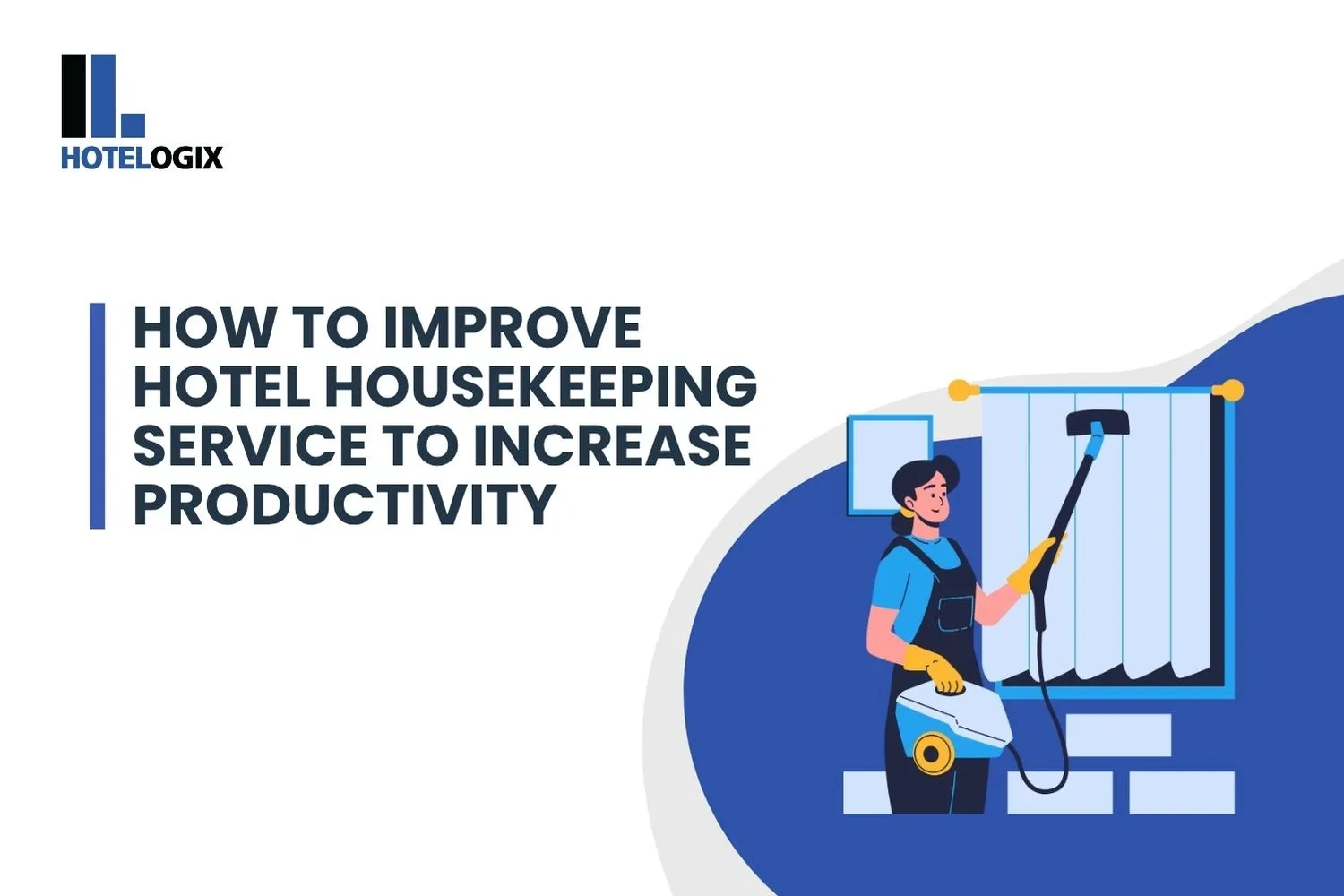Is your housekeeping team always playing catch-up? Want cleaner rooms, happier guests, and fewer complaints—without burning out your staff? Learn how Hotelogix's cloud-based PMS makes it easier to manage housekeeping and boost productivity across your hotel.
Why Housekeeping Is the Silent Superpower of Your Hotel
Let’s be honest—guests remember clean rooms more than smiling receptionists.
Before a guest says "hello" at the front desk, they've already judged your hotel by its cleanliness. Dusty surfaces, messy hallways, or wrinkled bedsheets? That’s all it takes for a guest to mentally check out—even before checking in.
In fact, in many cases, your housekeeping team has the first real impact on guest satisfaction. And that impact is either a 5-star review or a refund request.
So What’s Holding Housekeeping Back?
You probably know the answer already: Manual work. Poor communication. Staff confusion. And… a whole lot of running around.
Here’s what that actually looks like in daily hotel life:
Here’s the Good News: You Don’t Need More Staff. You Need Better Systems.
When you connect your housekeeping, front desk, and managers through one simple system, everything starts running smoother. Rooms get ready faster. Staff feels less stressed. Guests notice.
And yes, it directly improves your revenue too—especially when paired with a smart revenue management system.
Before You Start: What Kind of Housekeeping Setup Do You Have?

Not all hotels operate the same way. Some prefer full in-house teams. Others work with external housekeeping agencies. Here’s a quick look at what fits best:
Tip: No matter your model, better tools = better results.
Choosing What Works: Ask These 5 Quick Questions
- How big is your property?
- How fast do rooms need to be ready after check-out?
- Can your current staff handle peak seasons?
- What’s your monthly housekeeping budget?
- Do you need flexibility or full control?
Your answers will tell you whether to build an in-house team or outsource—and what kind of tech support you’ll need.
7 Proven Ways to Make Your Housekeeping Team Work Like Clockwork

You don’t need to guess what works. We’ve seen hundreds of hotels make small changes that led to big improvements. Here’s what’s working in 2025:
1. Train Smart, Not Just Hard
If your staff is doing things differently each time, you’ll always have inconsistent results.
Use checklists. Do short refreshers monthly. Show how long each task should take.
A 10-minute delay per room adds up to hours lost every day.
2. Give Staff Clear, Digital Task Lists
Your staff shouldn’t have to wait around to know what to clean. With Hotelogix PMS, they can:
- See exactly which rooms are dirty
- Prioritize urgent rooms
- Mark rooms “done” from their phone
3. Never Run Out of Supplies Mid-Shift
Running out of towels or cleaners mid-day? That’s a productivity killer. With Hotelogix:
- Get low-stock alerts
- Track what’s used daily
- Avoid over-ordering or under-ordering
Good inventory means fewer interruptions and faster clean rooms.
4. Upgrade Your Tools Before They Slow You Down
If your team is working with old vacuums and broken carts, you're losing time and money.
Buy smart, efficient tools. Repair or replace old equipment regularly. Ask your staff what slows them down.
One better mop could save you 30 minutes a day per housekeeper.
5. Spot Delays Early and Fix Them Fast
Hotelogix gives you reports that show:
- Which rooms are always late to be cleaned
- Which shifts are falling behind
- Where staff may need help
Instead of guessing, you’ll know exactly where the problem is—and fix it quickly.
6. Improve Team Communication
How many times has your front desk called housekeeping, only to find out the room still isn’t ready?
With Hotelogix:
- Room status updates instantly
- Everyone sees the same info in real time
- Fewer calls, less confusion
This is especially useful for hotels with a multi property & CRS setup where teams work across locations.
7. Automate the Routine. Focus on What Matters.
Let technology do the heavy lifting:
- Rooms marked “dirty” after check-out = tasks auto-assigned
- Urgent rooms flagged = shown at the top of the list
- Reports tell you how much time is spent per room
Your team works smarter. Guests get to their rooms faster.
What Makes Hotelogix a Game-Changer for Housekeeping?
New Hotel Trends You Can’t Ignore
The best hotels in 2025 are doing more with less. Here’s how:
- Using AI to schedule housekeeping based on bookings
- Tracking supplies digitally to save money
- Giving guests touch-free ways to make requests
- Using PMS data to plan staff shifts
- Being more eco-friendly with cleaning supplies
Hotelogix supports all of this—and keeps your hotel future-ready.
Final Thoughts
Housekeeping is one of the most critical departments in your hotel, but it doesn’t have to be the most chaotic. With the right structure, tools, and support from technology like Hotelogix, you can give your staff clear direction, remove guesswork, and ensure every room is ready on time. It’s not about doing more—it’s about doing better. When your rooms are clean, your guests are happy, and your team feels in control, everything else in your hotel runs smoother. And in today’s fast-moving hospitality world, that kind of efficiency isn’t a luxury—it’s a necessity.
Ready to Make Housekeeping a Breeze?
Try Hotelogix’s housekeeping module today. Save time, reduce stress, and run a cleaner, more efficient hotel—whether it’s a small property or part of a large group.
No more guesswork. No more chaos. Just clean, ready rooms—every single time.




